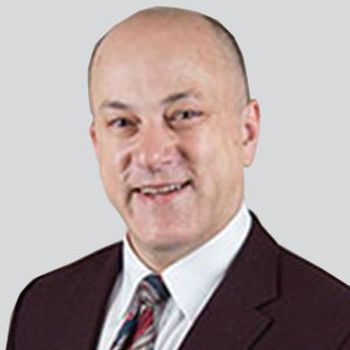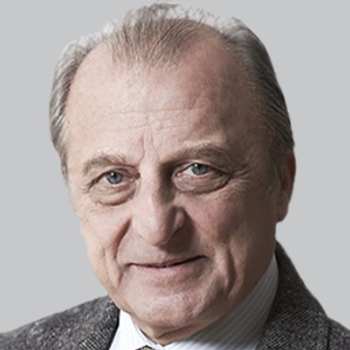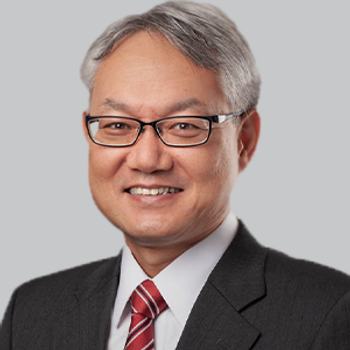
According to new data from STRIVE, 75.4% of those treated with natalizumab achieved overall No Evidence of Disease Activity status by year 4, and no patients had incidence of progressive multifocal leukoencephalopathy.

Matt Hoffman, Editorial Director for NeurologyLive, has covered medical news for MJH Life Sciences, NeurologyLive’s parent company, since 2017. He executive produces the NeurologyLive Mind Moments® podcast, and hosted the Medical World News show Deep Dive. Follow him on Twitter @byMattHoffman or email him at [email protected]

According to new data from STRIVE, 75.4% of those treated with natalizumab achieved overall No Evidence of Disease Activity status by year 4, and no patients had incidence of progressive multifocal leukoencephalopathy.

After showing significant benefits in delayed disease progression in patients with secondary progressive MS, new data suggests siponimod can delay the time to wheelchair dependence by 4 years.

The global head of neuroimmunology at Genentech spoke about the wealth of data being presented on its anti-CD20 monoclonal antibody ocrelizumab, as well as the success thus far in trials of its NMOSD agent, satralizumab.

Study coauthor and professor of neurology and ophthalmology at the University of Colorado provides insight into phase 3 study results of satralizumab, presented at ECTRIMS 2019.

New phase 3 data from the OPTIMUM head-to-head trial show that 20-mg ponesimod resulted in a significantly lower annualized relapse rate in adults with multiple sclerosis compared to 14-mg teriflunomide at 108 weeks.

New decade-long data have suggested that multiple sclerosis treatment with dimethyl fumarate is associated with stable EDSS scores ≤3, and a low number of patients with confirmed disability progression.

New data from clinical trials of ocrelizumab showed that the anti-CD20+ B cell therapy lowered serum NfL levels, and that the NfL levels offered prognostic value for disease progression in MS.

Data from the phase 3 SUNBEAM trial of the sphingosine 1-phosphate receptor modulator have suggested that the Celgene treatment lowers annualized relapse rates and reduces the rate of cortical gray matter loss, improving cognition measures, compared to IFN-ß1a.

The guidelines recommend that patients with MS receive their recommended vaccines, including that for yearly influenza. Additionally, they noted that no evidence exists that suggests vaccination increases the risk of MS exacerbation.

Ra Pharmaceuticals’ macrocyclic peptide inhibitor of complement component 5 is expected to enter phase 3 of its development in the latter half of 2019 after success in a phase 2 trial of its potential in myasthenia gravis.

The founder and CEO of NeuroEM Therapeutics discussed the potential of transcranial electromagnetic treatment and shared insight into the advantages it may hold over the traditional treatment route.

The study, expected to complete in early 2021, will measure change from baseline in daily on time without troublesome dyskinesia. The study design will be presented at the International Congress of Parkinson's Disease and Movement Disorders.

Novartis’ CD20+ B cell- targeting, fully-human antibody has outperformed teriflunomide (Aubagio) in a pair of phase 3 studies. The top-line data were presented at ECTRIMS 2019 in Stockholm, Sweden.

The senior vice president for research at the Kessler Foundation discussed the need for physicians to keep cognitive problems on their mind when treating patients with multiple sclerosis, and the importance of using objective assessments.

After being approved in Japan in 2013, the selective adenosine A 2A receptor antagonist was given the OK as an add-on to levodopa/carbidopa treatment in adults with Parkinson disease.

The use of the central vein sign resulted in a sensitivity of 68.1% and a specificity of 82.9% in distinguishing cases of MS on 3T MRI in a recent cross-sectional study.

The founder and CEO of NeuroEM Therapeutics discussed the potential of transcranial electromagnetic treatment, or TEMT, in treating patients with Alzheimer disease, with the hope of reversing cognitive impairment.

A number of cerebrovascular risk factors found to be associated with a subsequent diagnosis of Alzheimer disease also showed a high association with a diagnosis of Parkinson disease, pressing the impetus for controlling these modifiable factors.

The senior vice president for research at the Kessler Foundation detailed the current recommendations for cognitive screening in patients with MS, and appealed to clinicians to make the time for these symptoms in MS.

The senior vice president for research at the Kessler Foundation discussed the need for physicians to keep cognitive problems on their mind when treating patients with multiple sclerosis, and the importance of using objective assessments.

Serum NfL levels, at as early as the time of diagnosis, were a strong and independent predictor of death in patients with amyotrophic lateral sclerosis, with the study results expanding on the findings of prior literature.

The guidelines recommend that patients with MS receive their recommended vaccines, including that for yearly influenza. Additionally, they noted that no evidence exists that suggests vaccination increases the risk of MS exacerbation.

After being approved in Japan in 2013, the selective adenosine A 2A receptor antagonist was given the OK as an add-on to levodopa/carbidopa treatment in adults with Parkinson disease.

The director of comprehensive epilepsy center and professor of neurology at Thomas Jefferson University spoke to the evolution of epilepsy interventions over the last decade and its effect on the level of care for patients.

US WorldMeds rimabotulinumtoxinB injection showed significant decreases in sialorrhea symptoms with a single treatment as soon as the first week, lasting up to 3 months in clinical studies.

The professor of age-related diseases and dean of the University of Exeter Medical School discussed the need for improvement in nursing home care for those with dementia.

Jeffrey Dayno, MD, chief medical officer of Harmony Biosciences, as well as John C. Jacobs, the chairman and CEO, shared their insight into the potential impact pitolisant can make in the treatment of narcolepsy and excessive daytime sleepiness.

The professor of neurology at the Icahn School of Medicine at Mount Sinai discussed what still needs to be done to clarify medical marijuana’s position in medicine.

New findings have suggested dementia is a result of worsened white matter rarefaction, phosphorylated tau, and arteriolosclerosis due to repeated head trauma in former football players with CTE.

Boston Scientific’s Vercise Gevia deep brain stimulation system labels will allow for clinical use of stimulation during full-body MRI in patients with Parkinson disease, with an improved battery.